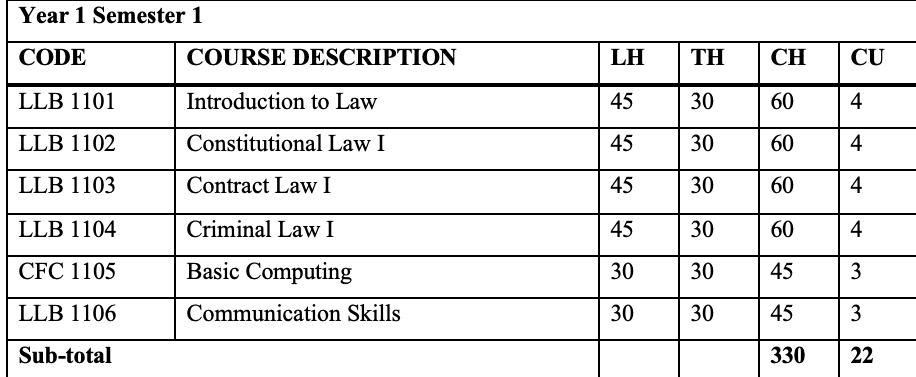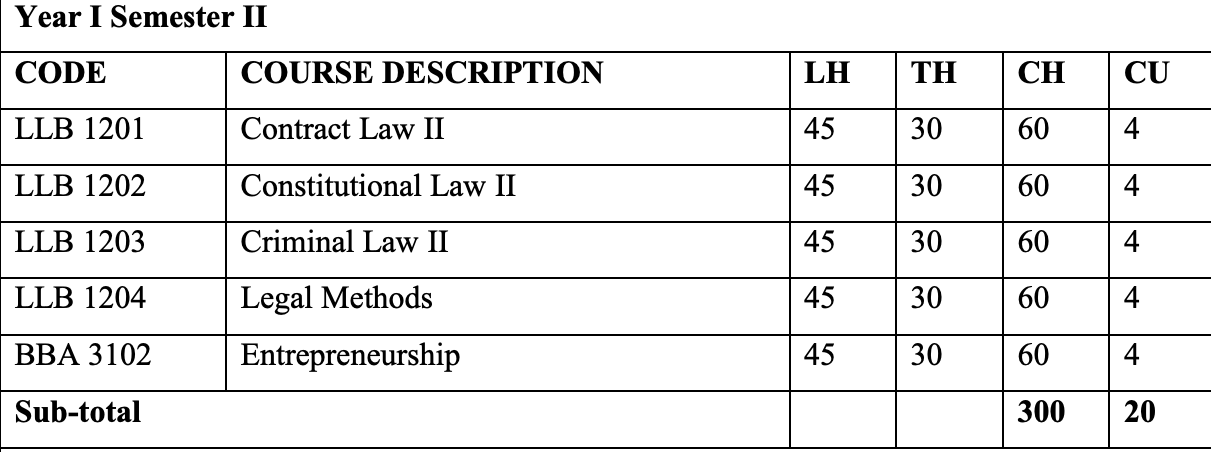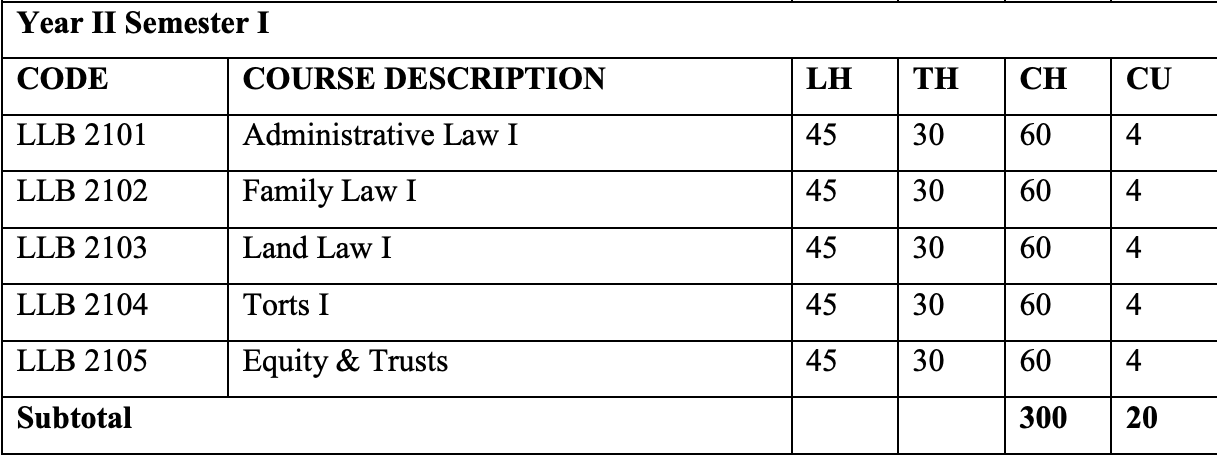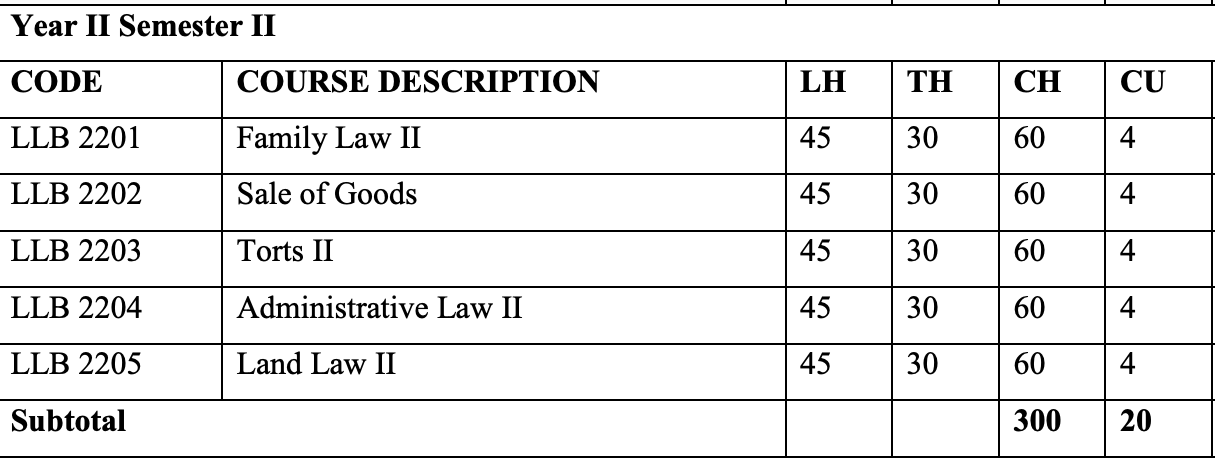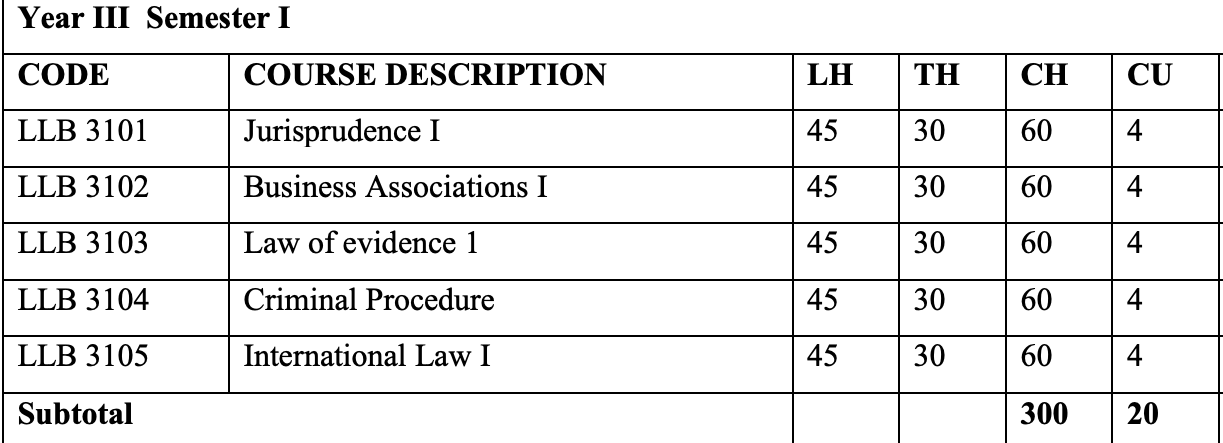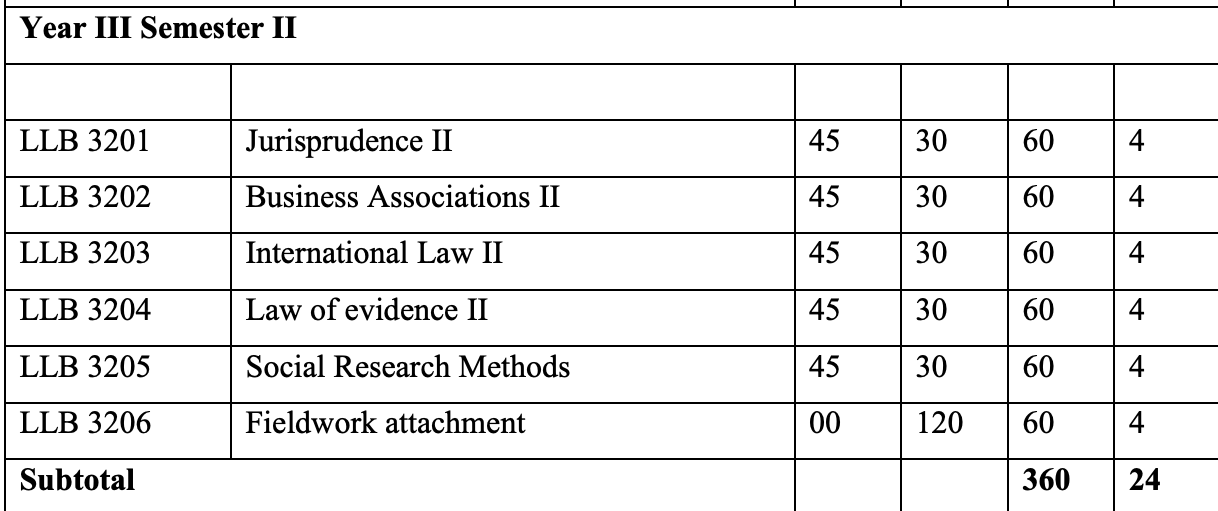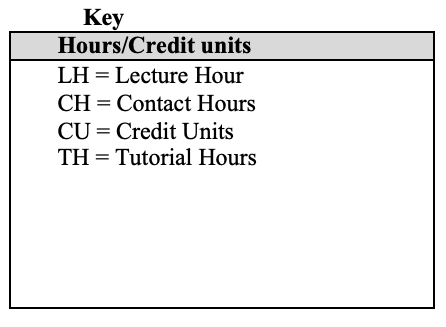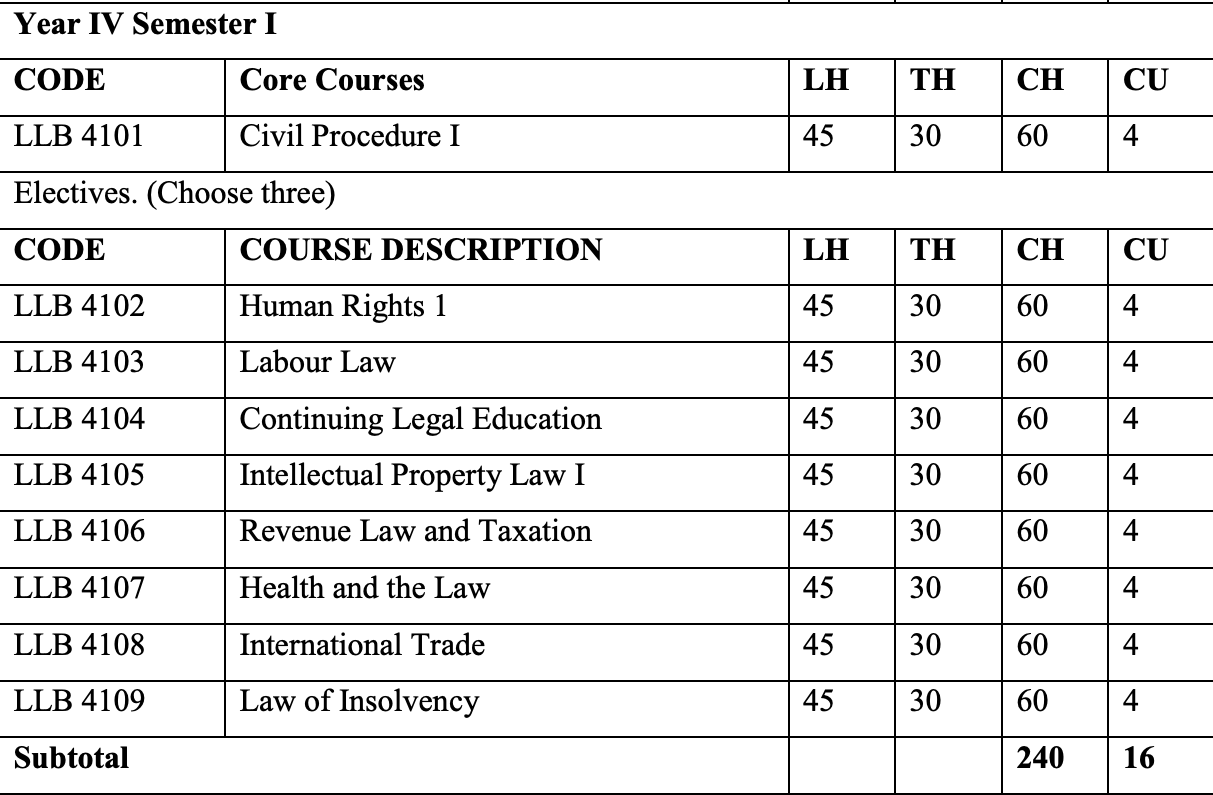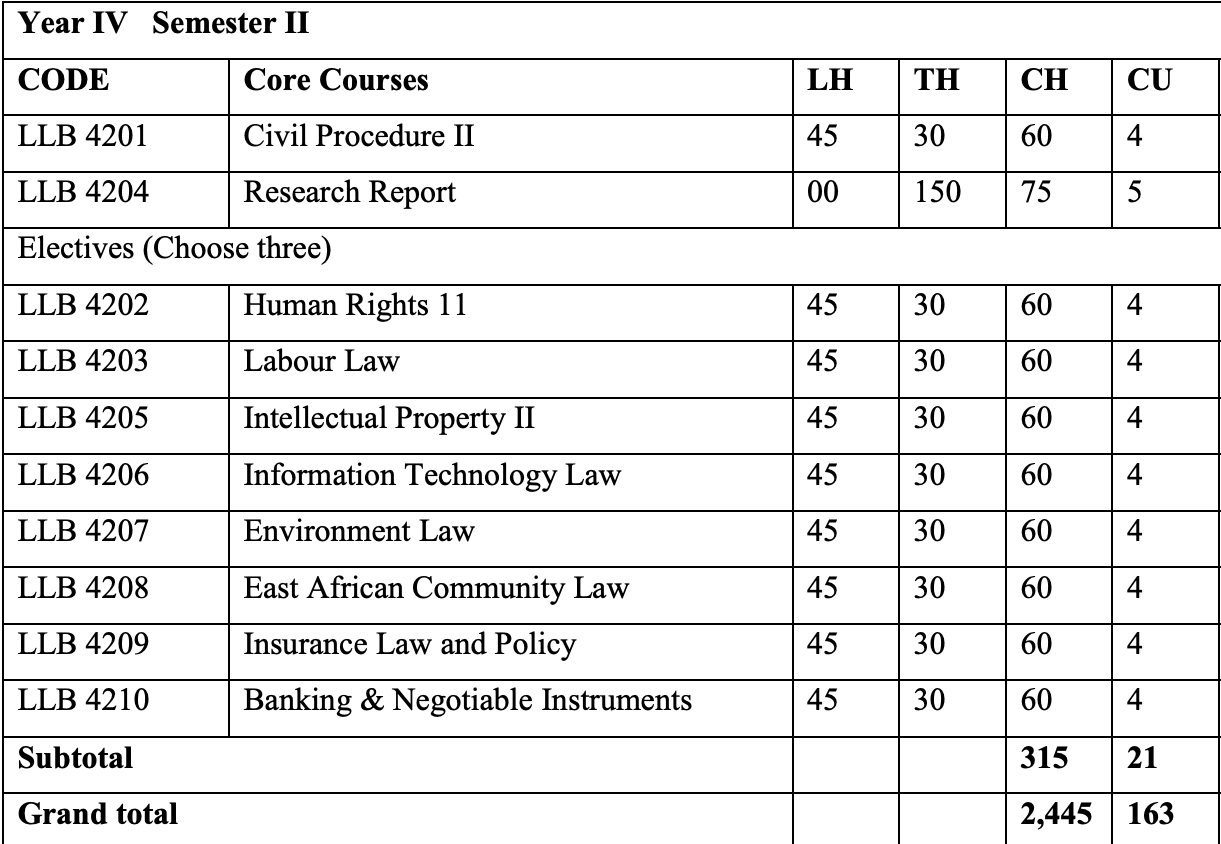
Ignite The Future
The Bachelor of laws Programme at KCU emphasizes a culture of thinking critically, facilitating advocacy, promote awareness of legal entitlement to both substantive and participatory justice, good health practice and research. It will support strong family values in the community and the world at large. We are particularly proud of our practical skills approach demonstrated through student participation in moots, clinical legal education, field attachments and our collaborative Memorandum of Understanding (MOUs) with various law firms and governmental institutions including the Office of the Director of Public Prosecution.
The law graduate will not only be in position to positively impact societal experiences but also go a long way in using principles from both substantive and procedural laws in settling of disputes strengthening the profession. This curriculum reflects the accepted and expected standards for legal training and legal education as set out by the ULC in conjunction with the National Council for Higher Education (NCHE).
Target groups
The duration of the programme is four (4) academic years which are subdivided into eight (8) semesters of full-time study. Where by each academic year is comprised of two (2) semesters.
The length of each semester is equivalent to seventeen (17) weeks. Fifteen (15) 12 of which are weeks for teaching whereas the two (2) out of the 17 comprise weeks for
examination period.
Direct Entry
For admission to the Bachelor of Laws degree programme under the Direct Entry Scheme, an applicant must have;
Diploma Holders Entry Scheme
For admission to the Bachelor of Laws degree programme.
Transfer from LLB programmes of other Institutions and referrals from Law council
Any candidate seeking for admission into the LLB program, who has been attending a similar programme
in another institution of higher learning recognized by NCHE;
In both situations, each candidate shall produce the following documents before he or she is considered.
International Applicants
At the end of the LLB course, the student shall be expected to:;
Tuition fees for privately sponsored students shall be **** USD per semester. All students are required to pay other functional and non-functional fees as may be defined on admission.
Each course taught shall account for a minimum of 2 and maximum 4 credit units and the full programme shall run for 145 credit units (CU). Contact Hours (CH) and Credit Units (CU) are used, where one (1) lecture hour is equivalent to 2 practical hours and 1 credit unit is equivalent to 15 hours.
